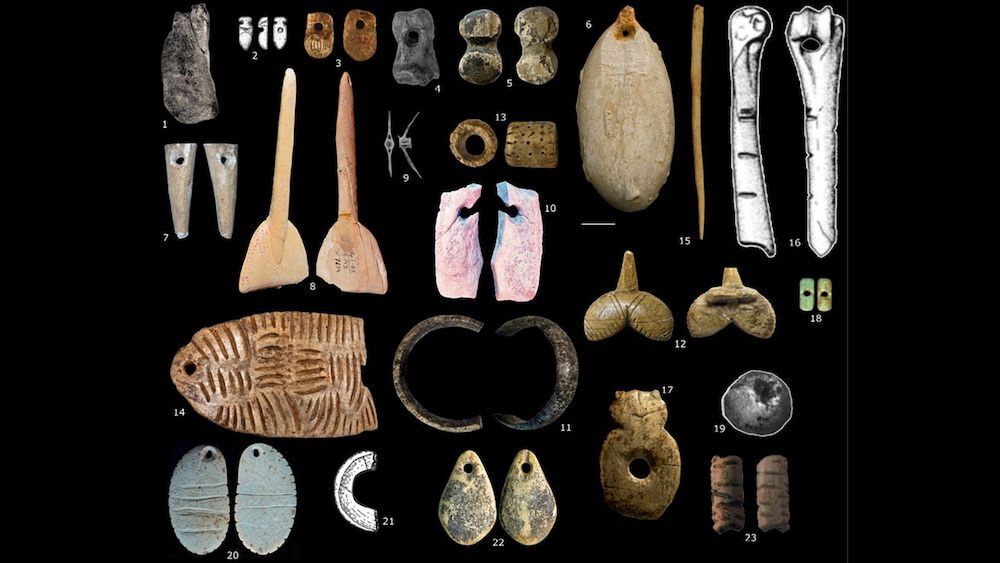- cross-posted to:
- worldnews@lemmit.online
- cross-posted to:
- worldnews@lemmit.online
Tens of thousands of years ago, prehistoric humans in Europe adorned themselves with such a wide variety of beads that researchers have classified nine distinct cultural groups across the continent based on their location and distinctive styles.
The researchers focused on the Gravettian period, which stretched between 34,000 and 24,000 years ago and was defined by hunter-gatherers who were also adept artisans, according to a study published Monday (Jan. 29) in the journal Nature Human Behaviour.
The Gravettians’ crafting skills can be seen in the variety of materials they used to make beads, such as ivory, bones, teeth (including those from bears, horses and rabbits), antlers, jet gemstones, shells and amber. These beads likely served as personal ornaments as well as cultural markers.
Would our current planet be considered one culture? What denotes the boundary of a culture? Do cultures ever split or do they only merge?



